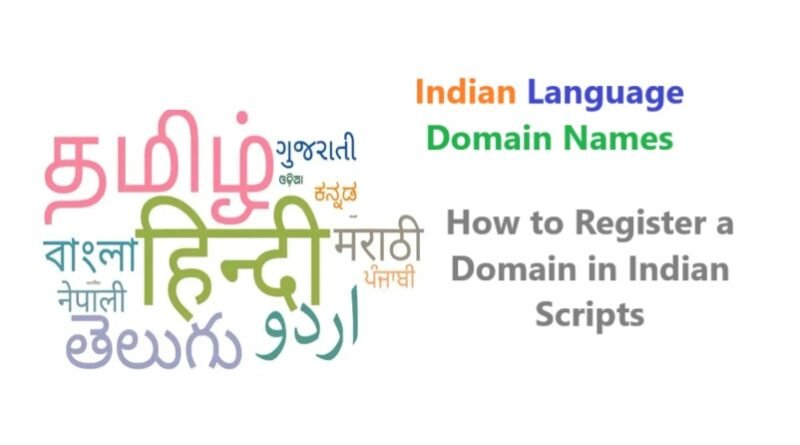Indian Language Domain Names
Introduction
In today’s digital world, domain names play a crucial role in establishing an online presence. With the increasing adoption of the internet in India, there is a growing need to make domain names accessible to users who communicate in different Indian languages. Recognizing this, the availability of domain names in multiple Indian scripts has become a significant advancement, enabling linguistic inclusivity and enhanced accessibility.
Importance of Domains in Indian Scripts
India is a multilingual country with 22 officially recognized languages and numerous regional dialects. While English has been the dominant language for domain names, a large segment of the Indian population prefers their native scripts for online interactions. Domains in multiple Indian scripts facilitate:
- Linguistic Inclusivity: Enables users to access websites in their native languages, bridging the digital divide.
- Better User Experience: Native script domains make it easier for users to remember and type domain names.
- Boosts Local Businesses: Small and regional businesses can enhance their reach by using domain names in local scripts.
- Preserving Cultural Identity: Helps in maintaining and promoting linguistic diversity in the digital space.
- SEO Benefits: Websites with native language domain names have better visibility in region-specific searches.
Indian Language Domain Names (IDNs)
Internationalized Domain Names (IDNs) are domain names that contain characters from non-Latin scripts, including Indian scripts. The Internet Corporation for Assigned Names and Numbers (ICANN) and the National Internet Exchange of India (NIXI) have facilitated the introduction of domain names in multiple Indian scripts.
Some of the prominent Indian scripts in which domains are available include:
- Devanagari (Hindi, Marathi, Sanskrit, Konkani, Nepali)
- Bengali (Bangla, Assamese)
- Gujarati
- Gurmukhi (Punjabi)
- Kannada
- Malayalam
- Odia
- Tamil
- Telugu
- Urdu
How to Register a Domain in Indian Scripts
Registering a domain name in an Indian script follows a process similar to that of Latin script domains:
- Choose a Registrar: Select a domain registrar that supports IDNs in Indian scripts, such as https://www.mitsu.in/, https://registry.gov.in/
- Check Availability: Use the registrar’s search tool to check if the desired domain name is available.
- Select the Right TLD: Commonly used Indian language domain extensions include:
.भारत(for Hindi, Marathi, Sanskrit, and other Devanagari script languages).ਭਾਰਤ(Punjabi).ভারত(Bengali and Assamese).ભારત(Gujarati).భారత్(Telugu).இந்தியா(Tamil).بھارت(Urdu)
- Register the Domain: Complete the registration process by providing required details and making the payment.
- Configure Website & Hosting: Link the domain to a hosting provider and develop content in the respective Indian language.
Challenges and Future Prospects
While domains in Indian scripts offer numerous benefits, some challenges remain:
- Lack of Awareness: Many users are still unaware of the availability and benefits of IDNs.
- Keyboard and Input Limitations: Not all devices have built-in support for typing Indian scripts, requiring virtual keyboards or transliteration tools.
- Technical Compatibility: Some older browsers and email services do not fully support IDNs, affecting usability.
- SEO and Marketing: Promoting websites with non-Latin script domains requires additional strategies to drive traffic.
Future Prospects
The increasing penetration of regional language content, along with government initiatives such as Digital India, will boost the adoption of Indian script domains. With advancements in AI and machine learning, better language processing tools will enhance user experience and encourage widespread use of domains in Indian scripts.
Conclusion
The availability of domains in multiple Indian scripts is a major step towards digital inclusivity. It empowers regional language users, helps businesses reach a wider audience, and preserves India’s linguistic heritage online. As technology evolves, Indian script domains will play an increasingly important role in shaping India’s digital future.

